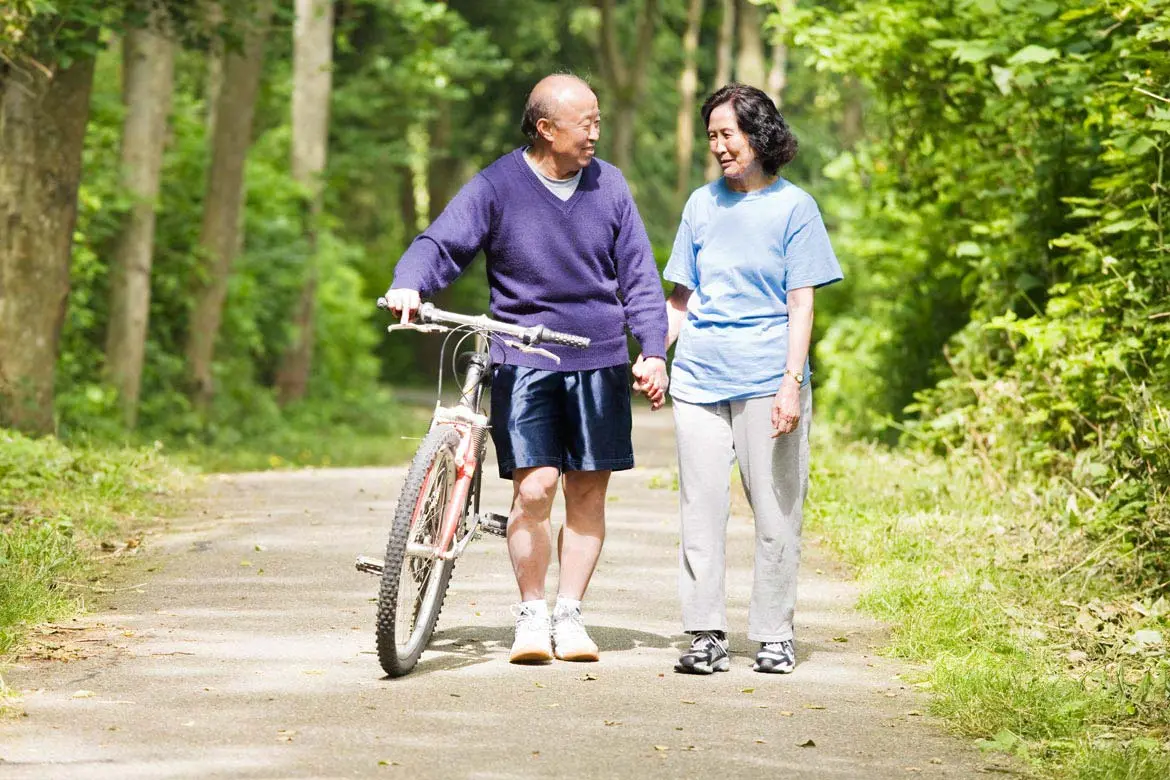

Source: Shutterstock
Total Knee Replacement: Arthroplasty Procedure & Recovery
Last updated: Thursday, February 10, 2022 | 5 min reading time
Osteoarthritis can affect your mobility, resulting in pain. Your doctor may recommend total knee replacement surgery. Learn more about this procedure and recovery process, and decide if it is right for you.
What is total knee replacement?
Total knee replacement surgery, or knee arthroplasty, is the replacement of your entire knee joint through surgery.
It is usually necessary if you suffer from severe osteoarthritis, resulting in pain as your mobility is compromised by the deterioration of your knee joints. Quality of life may be severely affected as you experience difficulty, and pain, when walking, climbing stairs, and even sitting on and getting up from a chair. You may even experience pain while at rest, which can also interfere with your sleep. If you remain dependant on pain medications after having explored all other non-surgical options, total knee replacement surgery, also known as knee arthroplasty, could be the option that can restore pain-free weight-bearing knee mobility.
Is total knee replacement suitable for you
Your orthopaedic surgeon will determine if you are a suitable candidate after taking your medical history and assessing your knee's thoroughly. In particular, they will look at the existing range of motion, stability and strength of your knee(s). X-rays (while bearing weight) is a routine way of assessing the extent of damage to your knee joints, and in surgical planning. If surgery is recommended your doctor will further explain the details of the procedure and tell you more about the available implant options.
Total knee replacement procedure
Preparation for a knee replacement surgery involves a complete physical examination and taking several tests to ensure that you are physically fit for the surgery. You will also need to inform your surgeon about the medications you take as some may need to be stopped temporarily before surgery.
Knee replacement surgery usually takes 1 – 2 hours, and it involves removal of the damaged cartilage and bone from the end of the thigh bone, top of the shin bone, and the underside of the kneecap with special jigs and replace those joint surfaces with metal alloys and even high-grade polymers.
Total knee replacement surgery complications
As with any surgery, there will be risks and complications. Potential risks from total knee replacement surgery include:
- Blood clots. Blood clots can happen in the leg veins. If these clots travel to the lungs, they can become life-threatening. Your surgeon will explain steps you can take to prevent blood clot.
- Infection. An infection may occur in the wound or around the prosthetics. Any infection in your body can also spread to the wound. Treatment involves antibiotics, more surgery or removal of the prosthesis depending on the severity of the infection.
- Implant failure. Over time, implants may be damaged or may loosen due to wear and tear.
- Nerve and blood vessel damage
- Heart attack
- Stroke
Total knee replacement recovery process
Post total knee replacement
You can expect to stay in hospital for between 3 – 5 days after a total knee replacement, depending on how well your recover.
In the initial stage it is important to monitor the blood circulation of the leg and swelling in the knee. You may be given blood thinners and asked to wear support tights to prevent blood clots if you have risk factors such as obesity, smoking, previous history of blood clot. Nevertheless, knee mobilisation and walking with a frame also begins soon after surgery, under your doctor’s orders.
A physiotherapist will also teach you exercises to do on your new knee and you will need to continue with these once you return home. Make sure you understand all the instructions given to you before you leave hospital so that you can continue your recovery well at home.
Home recovery for total knee replacement
For about 3 weeks after surgery, you will need some help to manage daily tasks such as cooking, bathing and housework, so make sure you have someone to help you at home. If you live alone, consider engaging a short-term caretaker.
Have your caretaker make sure your home environment is easy for you to navigate around, without the risks of falls or other accidents. Consider the following modifications to your home:
- Have safety bars installed in your shower or bath and a chair for you to sit on as you shower.
- If you have a low toilet seat, arrange for a toilet seat riser with arms to reduce the need to bend down.
- If you do need to use the stairs, ensure that the safety bannisters are sturdy and can support your weight.
- Use a comfortable chair with back support and elevate your leg on a footstool while you are sitting.
- Remove all tripping hazards such as loose rugs and cords.
Physical therapy after knee replacement
This is a very important component of your post-surgery recovery period. How well you adhere to the exercises you are taught to do will determine how well and how quickly you recover.
You may be provided knee immobilisers to stabilise the knee as you do your exercises and you may also be given a continuous passive motion (CPM) machine, which constantly moves the knee through various degrees of range of motion for hours while you relax. This can help to improve circulation and minimise scarring and tissue contraction around the knee.
As you start to move around with more ease, you can use a walker or crutches for support. Eventually, your physiotherapist will get you to do exercises that strengthen your thigh and calf muscles. This is crucial for satisfactory functional outcomes after knee replacement surgery.
Life after knee replacement
You should be able to return to your normal routine at approximately 6 weeks after surgery and handle daily activities such as shopping and housework. If you can bend your knee far enough by this stage and are no longer on narcotic pain medication, then driving is also possible.
Be cautious and set expectations around what you can do as you recover. You should be aiming for low impact activities such as walking, swimming, golfing or cycling on a stationary bike at this stage. Strenuous high impact activities such as jogging and competitive sports should be avoided as they will place too much strain on the artificial joint and risk damaging it.
If you are experiencing knee pain associated with stiffness and reduced mobility, consult an orthopaedic surgeon to evaluate your condition and find out more about your treatment options.
Knee replacement. Retrieved 7/7/20 from https://www.mayoclinic.org/tests-procedures/knee-replacement/about/pac-20385276
Total knee replacement. Retrieved 7/7/20 from https://www.medicinenet.com/total_knee_replacement/article.htm
Total Knee Replacement. (2020, June) Retrieved December 29, 2021, from https://orthoinfo.aaos.org/en/treatment/total-knee-replacement/
Total knee replacement. Retrieved 7/7/20 from https://www.medicinenet.com/total_knee_replacement/article.htm
Total Knee Replacement. (2020, June) Retrieved December 29, 2021, from https://orthoinfo.aaos.org/en/treatment/total-knee-replacement/
 Brain & Spine Care
Brain & Spine Care









